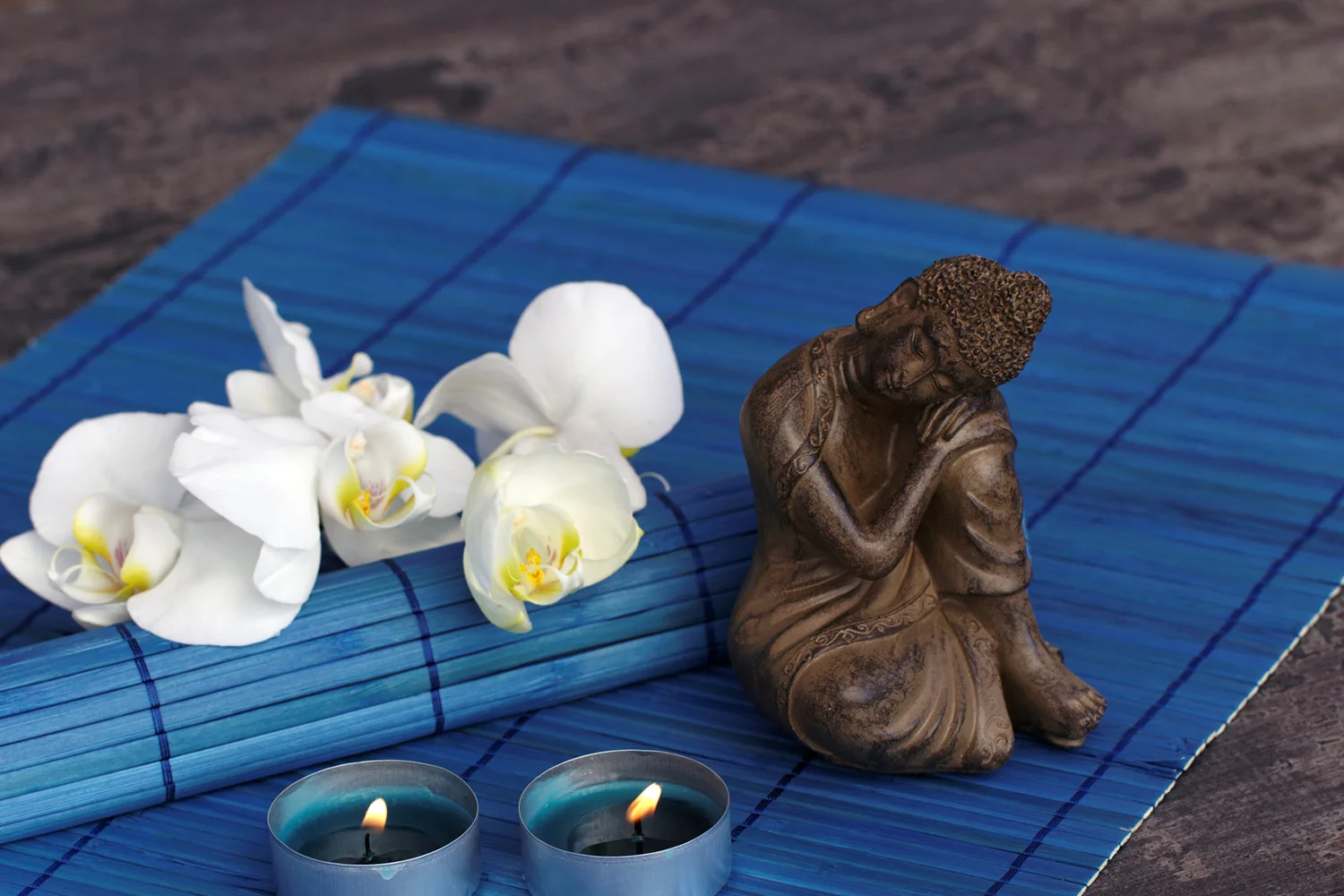The chubby laughing Buddha is an icon frequently seen in gift shops and not so often represented in the Buddhist teachings, which to many people appear to focus extensively on topics like suffering, emptiness, and stillness. He may seem a hollow depiction to some, who prefer the solitary images of the Buddha in the Ox-herding pictures, or his image as a teacher, or even the sleeping Buddha, waiting to be awakened into the world.
Celebrating the Non-Dual Message of Christmas
Perhaps it is time to write a few words about Christmas, and whatever meaning arises from this date for someone who is fairly enmeshed in the non-dual perspective. Could we be unconsciously celebrating our True Nature at Christmas? As I was raised a Catholic, Christmas had a sacred and magical feeling for me as a young child. I remember staring at the reflections in the globes on the Christmas tree and feeling entranced by the reflections of light.
Love and The Theory of Everything
I saw the movie “The Theory of Everything”, about the life of Stephan Hawking, last night. Unlike most Hollywood productions it is full of kindness and inspiration, demonstrating the miracle of love and courage in overcoming grief and limitation. Adapted from a book written by Stephen’s wife, Jane, it tells the journey from the moment they met at a college mixer, until they parted and moved in different directions many years later. Along the way their strength and devotion is evident, along with a remarkable ability to keep moving forward and defy the threat of death (he was told when first diagnosed at about age 21 that he had only 2 years to live, and is now going strong at age 72).
Presence and The Release of Stress
Have you ever taken a step away from your mind long enough to notice the relationship between stress and the thoughts you carry in your head? Can you imagine the release if you only could stop all thoughts for a few minutes? Of course we do this every night for a few hours. We realize that if we were to stop sleeping these same thoughts that maneuver us through the day would force us into mental bankruptcy and we would lose our minds. So we try to get our sleep.
Going Beyond Resistance
As we face the prospect of another war in the middle east, acknowledging the bombings that have already happened there for weeks, and now are recognized officially as they will be continuing indefinitely, where do you feel resistance? Is it resistance to the engagement of U.S. people and funds in another war, resistance to killing, or resistance to a terrorist group who brutally eliminate the lives of others?
Jesus as Metaphor for Spiritual Awakening
I'm facilitating a study group around Adyashanti's latest book Resurrecting Jesus: Embodying the spirit of a Revolutionary Mystic. This book is a wonderful invitation for those of us who have drifted afar from Christian teachings to rethink the story of Jesus, reflecting on his life as a metaphor for spiritual awakening. Great myths are metaphors for deep truths, and have a way of grabbing the unconscious and paving the way for transformation of the psyche. When they are penetrated and taken in they bring new hope and a bit of understanding of the mystery of human experience. They impact how we think and act.
This book about Jesus is ground-breaking, because Adyashanti brings to it his deep realization and the depth of his years of Zen practice, blending this with a transformative recognition of love that he encountered when exploring the deeper meaning of Christ. In a world that sorely needs hope and fresh ways of understanding the true radiant source of human life this book offers a way to penetrate the experience of the early Christians, before the church fathers created a business and behavioral philosophy around it. He says churches have ignored the sacred and the true potential for understanding how all of us are the sons and daughters of God, and instead limit that potential for the divine to the man Jesus, and tend to preach politics, morality and guilt, rather than transformation. It appears they ignore the model Jesus gave us of living a radiant life that reflects our own divinity, and is anchored in truth.
The story of Jesus parallels the journey to enlightenment -- the simplicity and the gifts of the magi at his birth (we all have both), his disillusionment with organized religion, His initiation symbolized with baptism, the release of his siddhis or powers and the need for healing, the struggle with his inner demons in the desert and in the garden of Gethsemane, the surrender to his fate, forgiveness, and transcendence. Implied in his life is also the theme of an engaged spirit.
Today, as in the time of Jesus, spiritual awakening must go beyond transcendence and calls for an engaged spirituality. Those who fully awaken are reborn into a service or destiny with the world, not one defined by the ego but rather a movement from the depths that longs to be followed. Adyashanti blends the wisdom of awakening with service through his teachings and his transmission, and this book in some way catches that energy and gift so that it can be an experience for the reader and not just an intellectual study.
He urges us to clarify our "aspiration" and to reflect on our two "orders of being", the human and the divine, the form and the formless. Just as Jesus expressed his humanness and his divinity it may be possible, even essential, for more and more humans to discover this possibility, go through the shedding of our old identities, and surrender into our destinies,
I've always felt the tragedy of the death of Jesus, not because he was god but because he was human. All humans that are subjected to the betrayal and horrific suppression that he was dealt are equally caught in tragedy. Every violent death is as horrid as the death of Jesus. As we learn of people, innocent or guilty, who are slaughtered by those who are ignorant of the sacredness of life we can feel the suffering that the family and friends of Jesus must have known, and find some hope in the archetypal resurrection of this timeless story. Jesus lived the whole of life, the beauty and the trauma, just as most of us must. Can his life as myth or metaphor give us hope, and new direction for awakening out of the blind collective adherence to the mind's divisive point of view about who is valuable and who is not? This is never the perspective of an awakened heart.
If Christians, Jews, Buddhists, Hindus, Muslims and all the rest of us alike began to see the truth of who we are, just as Jesus did, who would be left to cause such harm as crucifixion? Or murder families? Or drop bombs?
The challenge is that all of us must crucify our blind adherence to separation, collective belief systems and conditioned reflexes before we can be awake as a species. It may never happen, certainly not in our lifetimes. But if we as individuals can play our small part in the whole perhaps in time the collective field will transform just as the inspiration of Jesus must have intended. Ignorance may always exist but so does the potential for transformation and resurrection.




